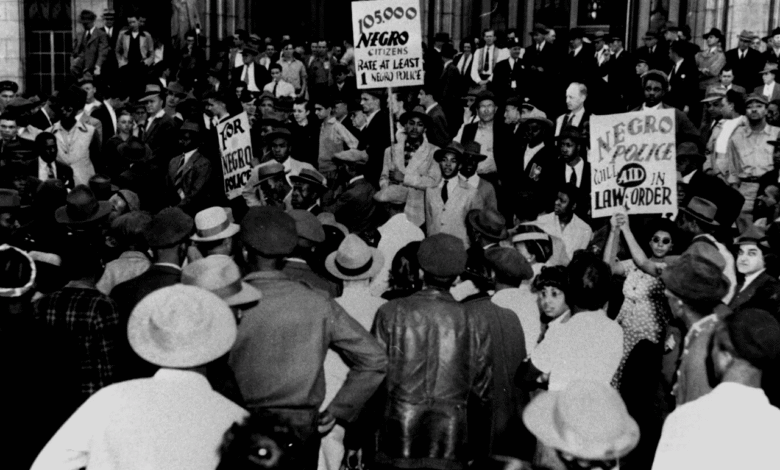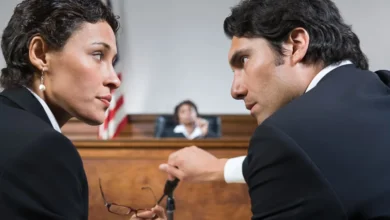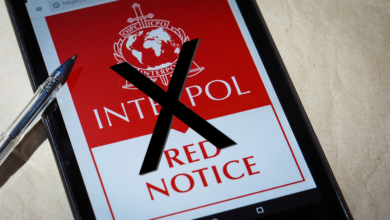Top Civil Rights Violations in Georgia and How to Fight Them
Civil rights violations in Georgia threaten equality Learn about common abuses legal protections and how to fight back effectively.

Civil rights violations in Georgia continue to threaten the freedoms and protections guaranteed to all citizens, disproportionately affecting marginalized communities. Despite legal safeguards, many individuals still face discrimination in policing, employment, housing, voting, and access to public services. These injustices not only harm victims but also weaken trust in institutions meant to uphold equality. Understanding these violations is crucial to combating systemic inequity and ensuring justice for all Georgians.
From excessive force by law enforcement to discriminatory practices in workplaces and voting restrictions, civil rights violations in Georgia take many forms. These abuses often target Black, Hispanic, LGBTQ+, and disabled communities, reinforcing cycles of disenfranchisement. However, legal protections and advocacy efforts provide pathways to challenge these injustices. This article explores the most pressing civil rights issues in the state, outlines victims’ legal rights, and offers actionable strategies to fight back against oppression. By raising awareness and empowering individuals, we can work toward a Georgia where equality is not just a promise but a reality.
Top Civil Rights Violations in Georgia and How to Fight Them
Police Brutality and Excessive Force
One of the most glaring civil rights violations in Georgia involves police misconduct, including excessive force, unjust shootings, and racial profiling. High-profile cases, such as the killing of Rayshard Brooks in Atlanta, have sparked nationwide outrage and calls for police reform. Victims of police brutality often face significant barriers when seeking justice, including qualified immunity laws that shield officers from liability. To combat this, individuals should document incidents thoroughly, file complaints with internal affairs or civilian oversight boards, and seek legal representation from civil rights attorneys. Organizations like the Southern Center for Human Rights and the ACLU of Georgia provide crucial support in such cases.
Racial Discrimination in Employment and Housing
Discrimination based on race remains a persistent issue in workplaces and housing markets across Georgia. Employees may face unfair treatment, wrongful termination, or wage disparities due to racial bias. Similarly, housing discrimination such as landlords refusing to rent to Black, Hispanic, or other minority tenants violates the Fair Housing Act. Victims of employment discrimination can file complaints with the Equal Employment Opportunity Commission (EEOC) or the Georgia Commission on Equal Opportunity. For housing discrimination, the U.S. Department of Housing and Urban Development (HUD) investigates violations.
Voter Suppression and Election Interference
Georgia has been a focal point in national debates over voter suppression, with laws like SB 202 imposing stricter ID requirements, limiting ballot drop boxes, and criminalizing handing out water to voters in line. Critics argue these measures disproportionately affect Black and low-income voters, violating the Voting Rights Act. Organizations such as Fair Fight Action and the NAACP Legal Defense Fund actively challenge these laws in court. Citizens can combat voter suppression by staying informed about their rights, participating in early voting, and supporting litigation against restrictive policies.
Disability Rights Violations
Under the Americans with Disabilities Act (ADA), individuals with disabilities are entitled to equal access in public spaces, employment, and education. However, many Georgians still encounter inaccessible buildings, workplace discrimination, and inadequate Violations in Georgia in schools. Legal recourse includes filing ADA complaints with the Department of Justice or pursuing lawsuits against non-compliant entities. Advocacy groups like the Georgia Advocacy Office assist individuals in securing their rights. Public awareness campaigns and stricter enforcement of ADA standards are necessary to ensure full inclusion.
LGBTQ+ Discrimination
Despite advancements in LGBTQ+ rights, discrimination persists in Georgia, particularly in employment, healthcare, and public Violations in Georgia. Some businesses and healthcare providers refuse service based on sexual orientation or gender identity, while transgender individuals face barriers in accessing appropriate medical care and identification documents. The U.S. Supreme Court’s Bostock v. Clayton County ruling extends Title VII protections to LGBTQ+ employees, allowing victims to file discrimination claims. Organizations like Georgia Equality provide legal support and advocacy.
How to Fight Civil Rights Violations in Georgia
Know Your Rights
Knowledge is power when it comes to protecting your civil rights. Start by educating yourself about key federal and state Violations in Georgia, including the Civil Rights Act of 1964 (which prohibits discrimination based on race, color, religion, sex, or national origin), the Americans with Disabilities Act (ADA), and the Fair Housing Act. Many government agencies like the U.S. Department of Justice and the Georgia Commission on Equal Opportunity provide free guides explaining these laws in plain language.
Document Everything
When documenting civil rights violations, thorough evidence collection can make or break your case. Immediately record details by taking timestamped photos or videos of incidents, injuries, or discriminatory Violations in Georgia. Secure witness contact information and written statements while memories are fresh. Request copies of all relevant official documents police reports, medical records, or employment files – as these carry legal weight.
File Official Complaints
When civil rights violations occur, promptly reporting them to the proper government agencies creates an official record and initiates potential investigations. Key agencies include the Equal Employment Opportunity Commission (EEOC) for workplace discrimination, the Department of Housing and Urban Development (HUD) for housing violations, and the Department of Justice (DOJ) for broader civil rights infringements.
Seek Legal Representation
When facing civil rights violations, experienced attorneys can be invaluable allies in navigating complicated legal systems. Numerous organizations in Georgia offer free or low-cost legal assistance to those who qualify, including the Georgia Legal Services Violations in Georgia , the Southern Center for Human Rights, and the ACLU of Georgia.
Advocate for Systemic Change
Real change often begins at the grassroots Violations in Georgia . You can combat civil rights violations by joining local advocacy groups, attending town halls, and participating in peaceful demonstrations that demand justice and equality. Make your voice heard by directly contacting state legislators phone calls, emails, and petitions can influence policy decisions. Support organizations like the NAACP, Fair Fight, and the Southern Center for Human Rights through donations, volunteering, or amplifying their campaigns on social media.
Read More: What are Blue, Green, and Silver Notices in the UAE?
Conclusion
Civil rights violations in Georgia remain a persistent challenge, but awareness and action can lead to meaningful change. From police misconduct to voter suppression, these injustices demand both individual and collective responses. By understanding our rights, documenting abuses, and utilizing legal resources, Georgians can hold violators accountable and push for systemic reforms. Every complaint filed, every lawsuit pursued, and every policy challenged brings us closer to a more equitable society.
The fight against civil rights violations in Georgia requires sustained effort and solidarity across communities. While legal protections exist, their enforcement depends on vigilant citizens and robust advocacy. By supporting organizations that defend civil rights, participating in local activism, and demanding accountability from elected officials, we can help dismantle discriminatory systems. Together, Georgians can create a future where justice and equality are not just ideals, but lived realities for all.
FAQs
What are the most common civil rights violations in Georgia?
Police brutality, racial discrimination in employment/housing, voter suppression, disability rights Violations in Georgia , and LGBTQ+ discrimination are among the top issues.
How can I report police misconduct in Georgia?
File a complaint with the police department’s internal affairs Violations in Georgia , the Georgia Bureau of Investigation, or organizations like the ACLU.
What should I do if I face housing discrimination?
Contact HUD or the Georgia Commission on Equal Opportunity to file a complaint under the Fair Housing Act.
Can I sue for workplace discrimination in Georgia?
Yes, under Title VII of the Civil Rights Act, you can file a complaint with the EEOC and pursue legal action if discrimination is proven.
How can I help fight voter suppression?
Support organizations like Fair Fight Action, stay informed about voting rights, and advocate for policies that expand access to the ballot.











